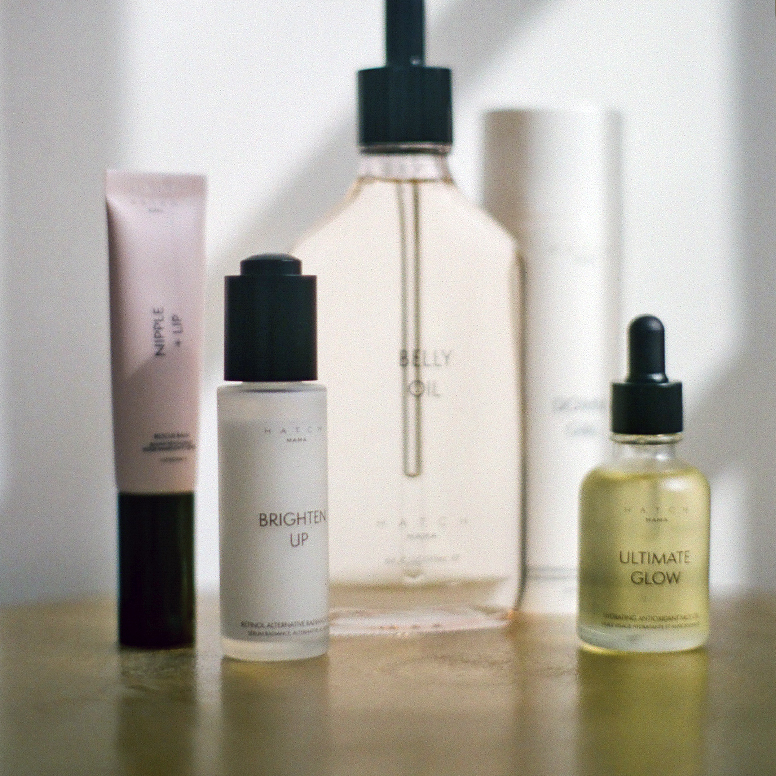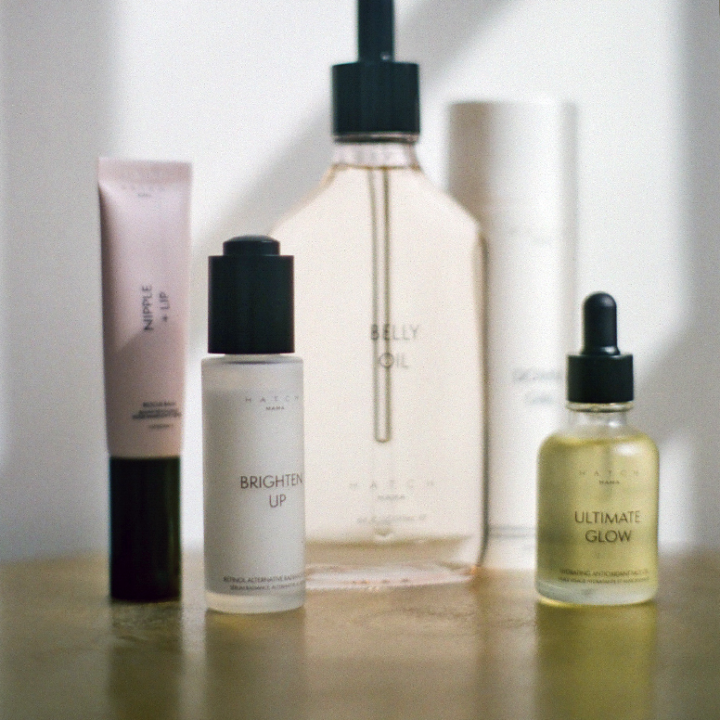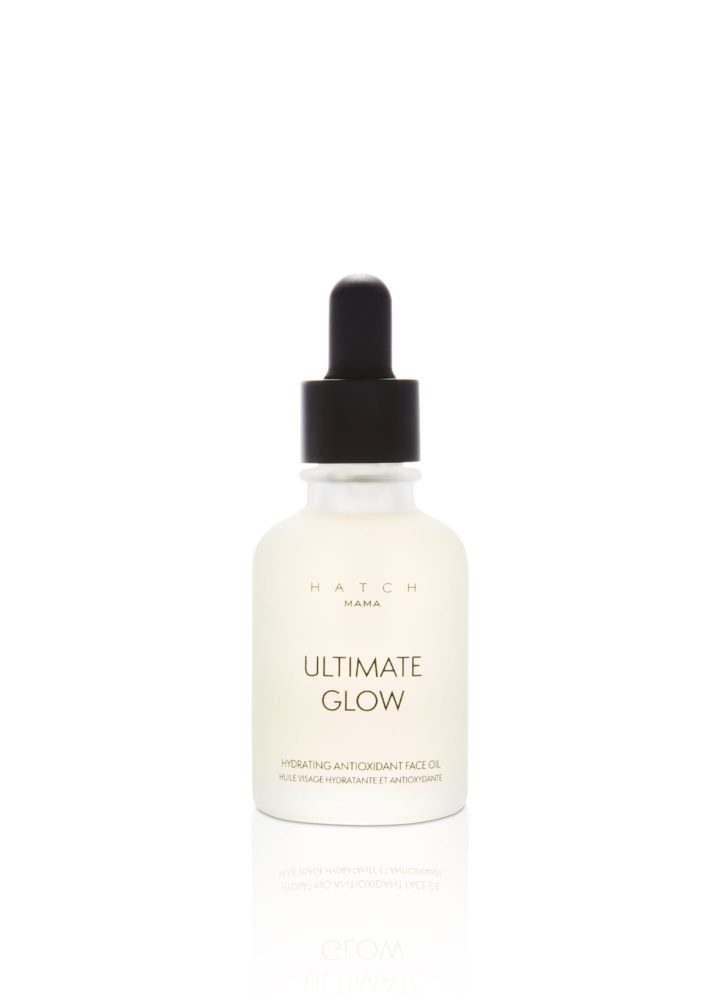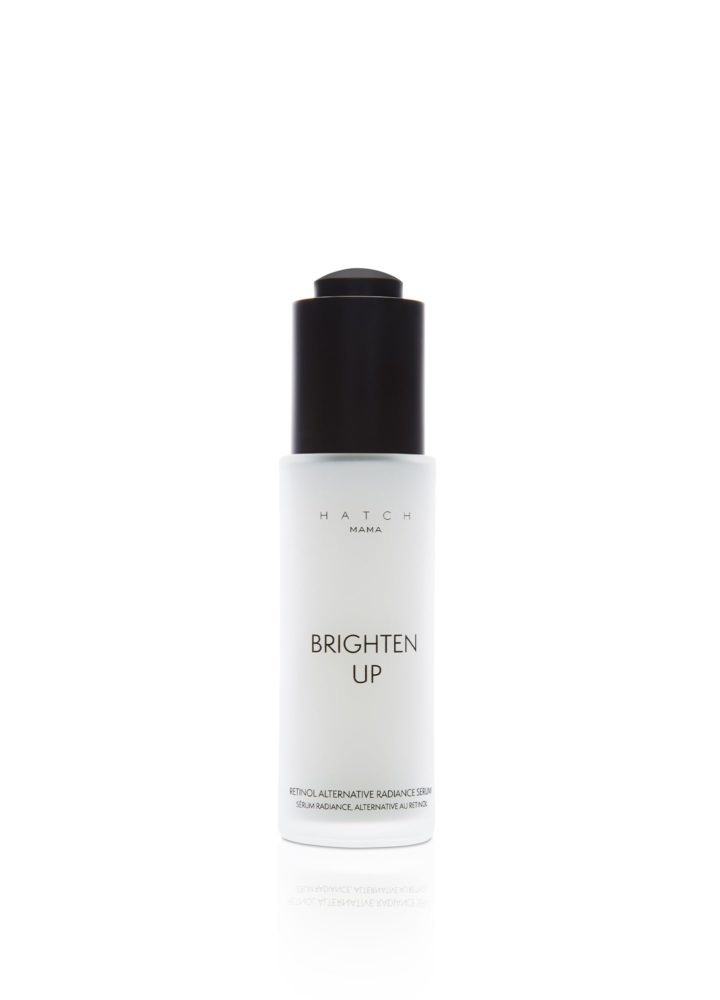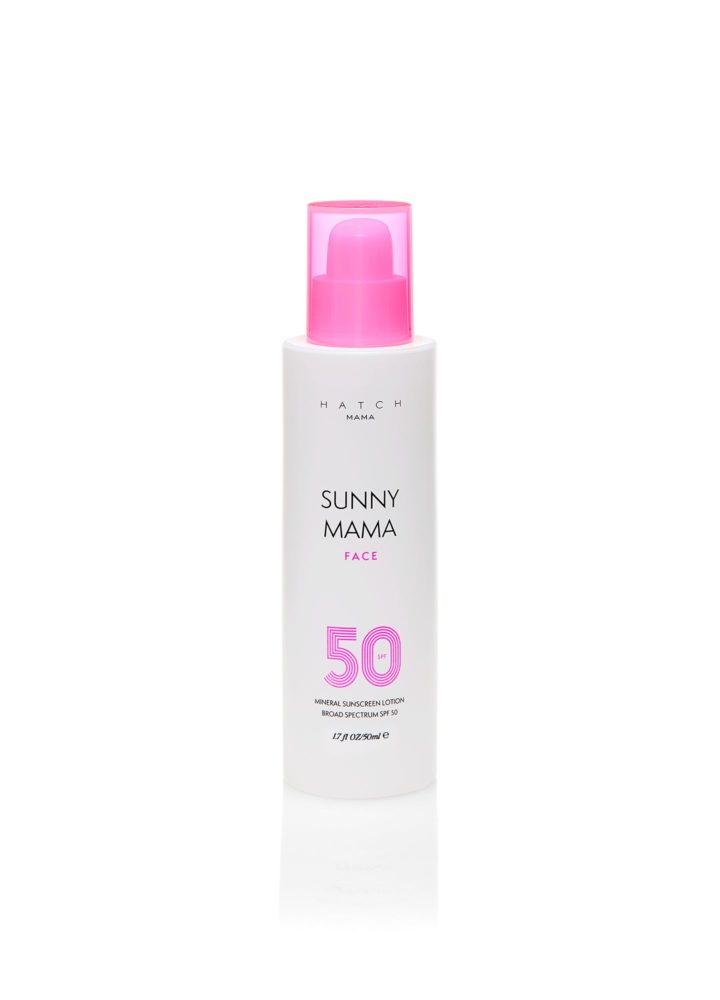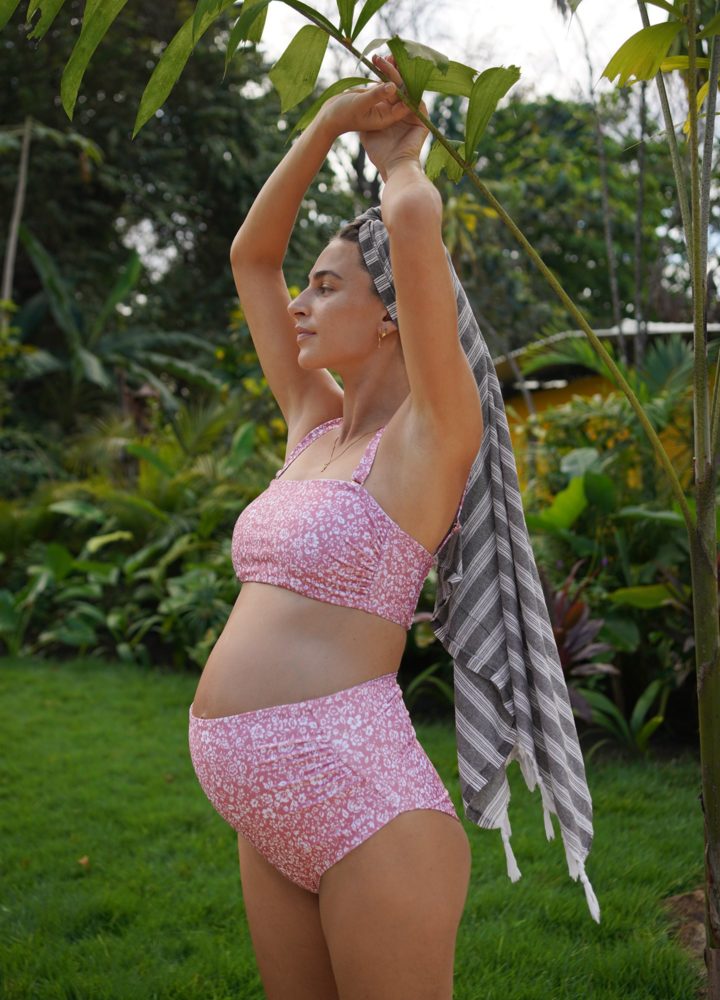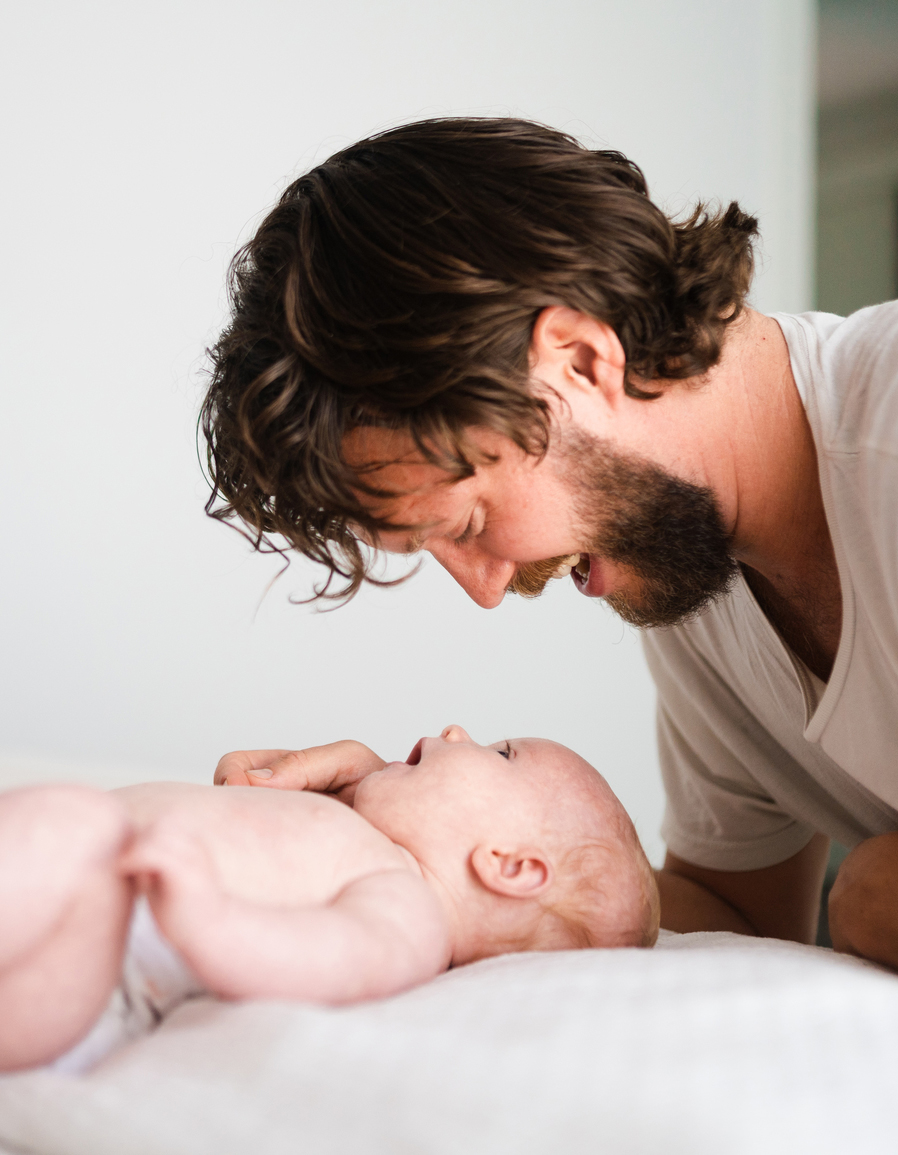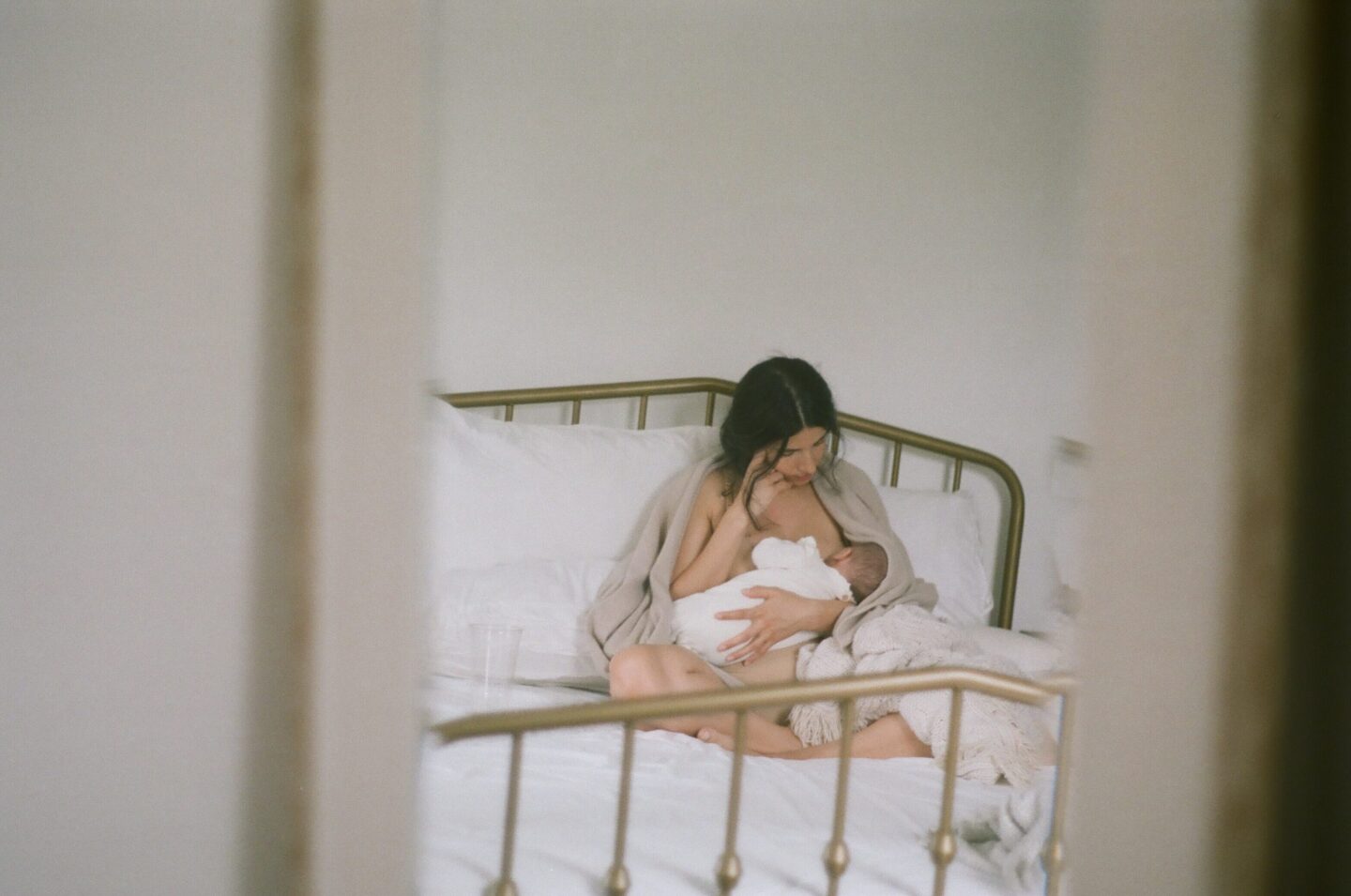After years of experimenting with products, figuring out your skin type, and countless dermatologist appointments, you’ve FINALLY figured out a skincare routine that works for you. You’re glowy, acne-free, and… pregnant?!
First of all, congrats!
Second of all, pregnancy can wreak havoc on your skincare routine. It’s true — there are a few skincare ingredients you should try to avoid while preggo. But that doesn’t mean your skin is doomed. We’ve gathered the research on the dos and don’ts of skincare products during pregnancy and have allllll the info you need right here.
Keep reading for a full guide to skincare ingredients to avoid while pregnant below.
Why Do I Need To Avoid Certain Ingredients While Pregnant?
You might be wondering why you need to avoid certain skincare ingredients while pregnant in the first place. Skincare products go on your face — how is it they could pose a risk to baby?
The answer lies in how good our skin is at absorbing solutions, including solutions that may contain high levels of active ingredients like benzoyl peroxide, vitamin A, and isotretinoin.
According to dermatologists, we absorb anywhere from 2-5% of the active ingredients in the topical skincare products we apply to our faces. That might be fine for us grown-ups, but for a growing fetus, the consequences are less clear.
In fact, there isn’t a ton of research on the impacts of some skincare ingredients on pregnant women at all, which is the main reason why most derms and Ob/Gyns are likely to recommend against them during pregnancy.
While science is always improving, this is a good time to reach out to your personal healthcare team.
What Skincare Ingredients Should I Avoid While Pregnant?
Now for the most important question: Which skincare products will you need to cut out for the next few months, and which are safe to keep using?
Keep reading. We’ll walk you through it.
Retinoids
Retinoids, which include retinol products, tretinoin, and isotretinoin (or Accutane), might just be the holy grail of skincare at the moment. Retinoids are a vitamin A derivative that have been clinically shown to reduce both acne and fine lines, making them your secret weapon against aging.
However useful they are the rest of the time, though, retinoids (and all retinol products) should be avoided during pregnancy. The surplus vitamin A that gets absorbed into the bloodstream could be potentially dangerous to a growing baby. As such, most docs recommend cutting the retinoids one to two months before trying to get pregnant, if possible.
Salicylic Acid (In High Doses)
Salicylic acid is often the frontline defense against acne. It has anti-inflammatory properties and helps keep pores clear of the gunk that can build up into a pimple. In fact, it’s likely that your favorite acne-fighting face wash or serum contains a little salicylic acid.
While most over-the-counter salicylic acne medication has been cleared for use during pregnancy, studies suggest that high-dose applications — such as peels or oral medications — might not be the best. This might be a good time to discover a new OTC go-to for your bathroom cabinet.
Hydroquinone
Hydroquinone is a prescription product used to reduce hyperpigmentation. It’s often used to treat melasma and chloasma, skin pigmentation conditions sometimes triggered by pregnancy, as well as dark spots.
Our bodies can absorb a much larger amount of hydroquinone compared to other active ingredients — which means a baby can absorb a much larger concentration, too.
Your doctor might give you the all-clear to use hydroquinone post-pregnancy (but make sure to double-check with them if you plan on breastfeeding).
Phthalates
Phthalates are a common ingredient in many beauty products, such as cosmetics and hair products. It’s found in nail polish, antiperspirant, and similar products, but you’re less likely to see them in your skincare products. It’s more commonly found in your foundation or shampoo than in moisturizer or lotion.
Phthalates are known as endocrine disruptors, which means they impact your body’s natural hormone metabolism. Studies around the long-term impact of that (and what it means for our health) are ongoing.
However, scientists are suggesting that the presence of phthalates could be dangerous to a growing fetus.
So if you’re in your first trimester already or planning to become pregnant, you might want to find other alternatives to refresh your beauty product lineup.
Chemical Sunscreen
SPF — what would we do without her? Sunscreen is pretty much the most important step in your skincare routine. It’s perhaps the single most important anti-aging product you can use.
When it comes to pregnancy, though, not all sunscreen ingredient lists are created equal. Sunscreens containing oxybenzone — AKA the FDA-approved active ingredient in most chemical sunscreens — are considered less safe during pregnancy than physical sunscreens. That’s because, like phthalates, oxybenzone is a known endocrine disruptor, and the impacts of that on a growing baby are unclear.
So what’s a sun-conscious mama-to-be supposed to do? Physical barriers to the sun, such as wide-brimmed hats and a cute pair of shades, are always a safe bet. So are mineral-based sunscreens, which tend to contain safer ingredients, like zinc and titanium dioxide.
So put that chemical sunscreen on the shelf for a few months, and try pairing your fave maternity bikini with a stylish hat and mineral sunscreen instead.
Pregnancy-Safe Skincare
Okay, we’ve covered all the pregnancy skincare red flags — what about products that ARE safe to use?
Luckily, there are a number of pregnancy-safe alternatives — no need to leave your skin high and dry for the next nine months.
Acne Treatment
If a hormonal acne breakout has got you feeling like you took a time machine back to seventh grade, you aren’t alone. Pregnancy acne is totally normal. It’s usually the result of a combination of increased hormones and oil production while your body gets ready for baby.
Rather than using retinoids or high-dose salicylic acid creams to treat your acne, consider a gentler pregnancy-safe alternative like vitamin C. Glycolic acid is another option. It’s a gentle alpha-hydroxy acid (AHA) that can promote skin cell turnover while exfoliating deep in your pores to prevent the oil buildup that tends to cause acne.
Another pregnancy-safe AHA is an azelaic acid cleanser. In fact, the American College of Gynecologists and Obstetricians (ACOG) endorses both glycolic acid and azelaic acid as great options for pregnancy-safe acne treatment, in addition to low-dose salicylic acid.
Time to celebrate! Even if retinol products like Retin-A and retinyl palmitate are off the table, you still have a number of pregnancy-safe acne treatment options.
Anti-Aging
You also still have a number of anti-aging alternatives aside from retinol. Committing to a physical barrier against the sun — whether that’s covering up, wearing a hat and sunnies, or Sunny Mama Face Mineral Sunscreen — is going to be your number one defense against wrinkles and fine lines, no matter whether you’re expecting or not.
But there are also a ton of retinol alternatives on the market that can help fight wrinkles and melasma without putting your babe at risk (including our personal favorite, bakuchiol-based Brighten Up Serum).
Ingredients like argan oil, papaya fruit extract, and, of course, bakuchiol can help nourish and hydrate your skin, all of which can help fight fine lines and hyperpigmentation. This skin-brightening powerhouse is a gentle way to lock in that pregnancy glow.
Hydrating your skin is one of the best things you can do to fight against signs of aging and other skin woes. You can rely on products containing hyaluronic acid and antioxidant-rich fatty acids (like in the Ultimate Glow Face Oil), as well as drinking enough water and eating fruits and vegetables to fill your skin with hydration and nourishment.
Reach Out With Questions
Okay, we’ve walked you through many common skincare ingredients that you might want to avoid during pregnancy, as well as some safe alternatives that we adore.
We want to note, though, that at the end of the day, your best resource for questions regarding safety during pregnancy is your Ob/Gyn, dermatologist, or another healthcare provider.
So if you’re ever unsure whether a product is safe to use during pregnancy or need to find a safe solution to a skin problem, ask your doctor — they’ll be able to provide the answers you need.
The Best Pregnancy Glow Comes From the Inside
It’s totally normal to experience a variety of skin conditions during pregnancy, including dry skin, hormonal acne, and melasma. You might feel pressure to keep your skin looking as flawless as usual during this time or to develop that mythical pregnancy glow, but the reality of pregnancy is a lot less glamorous — and that’s okay.
So don’t beat yourself up for not looking the way you “should” or the way you’re used to. You’re doing the work of growing a little babe inside you right now, and at the end of the day, that’s what really matters.
Sources:
